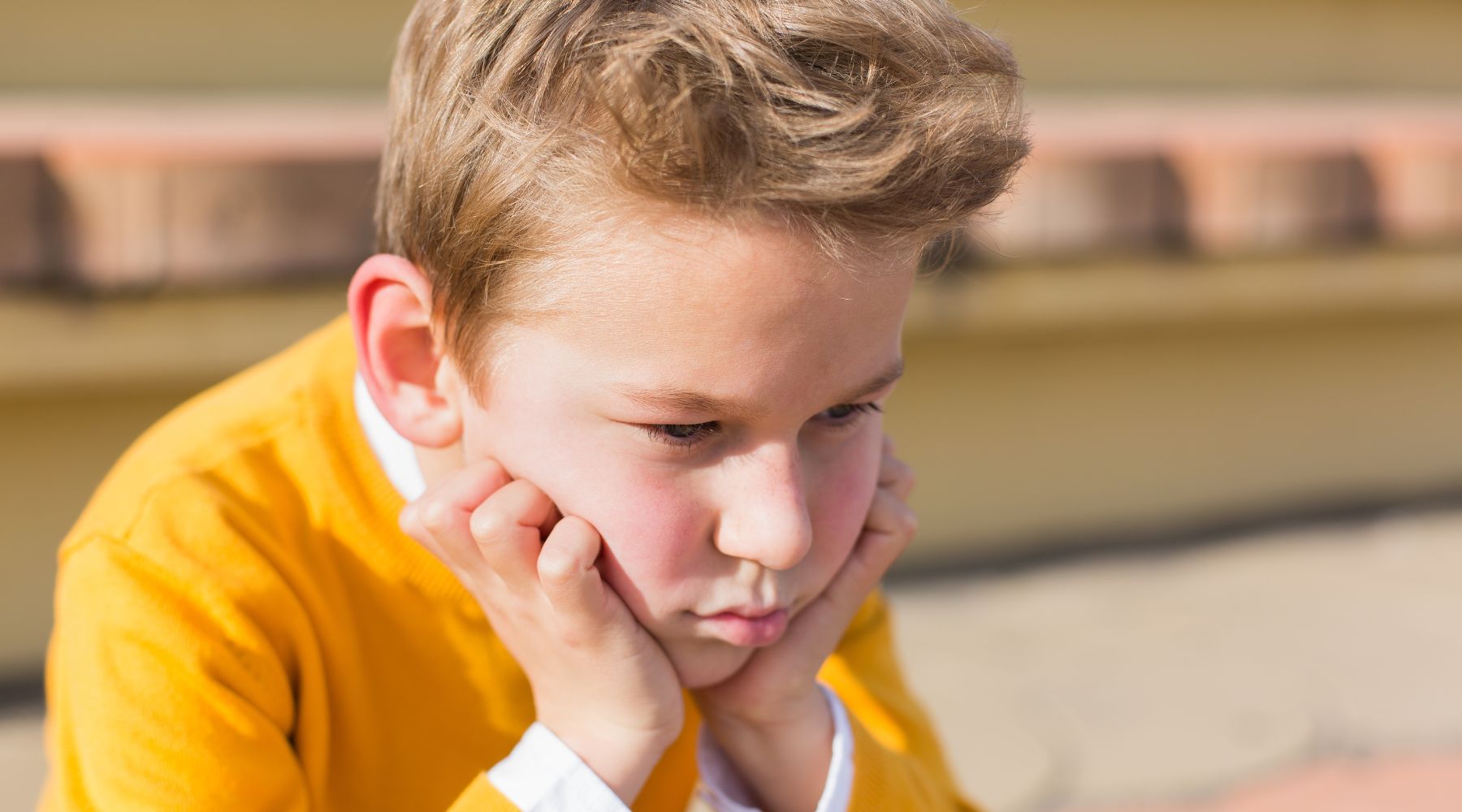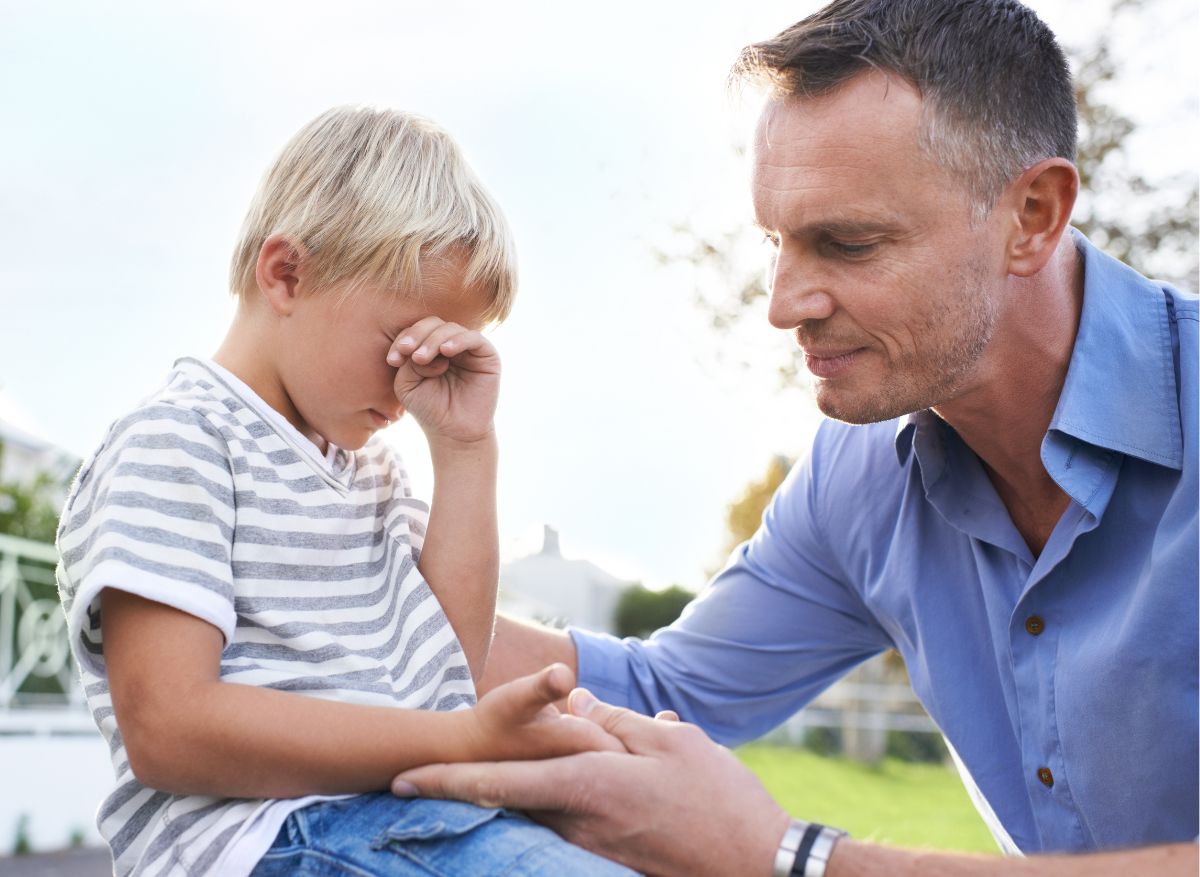
If you're not on time for pick up, how does your child react? Here, tween and teen parenting author and speaker Michelle Mitchell, shares her common sense ideas to promote resilience.
I caught up with a mum over coffee this afternoon. She shared with me this gem, which is a great example of letting children build their own life from the ground up. She said, ‘I don’t want the first decision my kids make (independently) to be whether they should get into the car with someone who has been drinking or not. If they have never felt the consequences of little decisions, they won’t know how to make life-changing decisions well. That’s why they choose whether they wear thongs to walk across a hot road or not. That’s why they choose if they wear a jumper or not.’
How easy is it to want our children to be so comfortable that we don’t want their feet to be hot or their body to be cold? When we put it in this perspective, it is ridiculous, isn’t it?! It is uncomfortable watching anyone struggle, let alone your own children, whom you have cared for since birth – so it takes commitment for parents to let go and let their children discover life. The reality of this style of parenting means that your child will experience failures, and things won’t always be plain sailing.
If your child is a dreamer and has grand ideas that you know have a high chance of failing. The temptation would be to block their ambition. Maybe he or she wants to try out for a sporting team that you know they won’t get picked for. The temptation would be to talk him or her out of it. Maybe your child struggles with anxiety, and instead of trusting teachers at school to care for them, the temptation would be to respond to their texts during the day and bring them anything they request.
When we constantly fill in all the gaps, our children don’t need to stretch themselves by asking for help, solving problems or taking risks.
By stepping back, we give our children confidence that they can’t gain any other way. We say to them loud and clear that we believe in their ability to get through challenges. We hand them their lives to take responsibility for.
In saying that, one of a parent’s main roles is to protect their child. If we are going to let go of our children’s responsibilities, we have to lean into ours! We’re not just talking about a child’s physical safety, but emotional and social safety as well.
There is often tension between protecting a child and allowing them to make mistakes or fail. Resilient children grow up to calculate risk well because they have practised making mistakes. During these times, they have had opportunities to assess their capabilities, limitations, and tolerance for the gap between the two.

With each year that their children grow, parents face the challenge of letting go a little more.
I distinctly remember feeling the drive to protect my boys from taking risks when they were learning to surf. The waves they wanted to surf and the waves I thought were safe to surf were two totally different things. I wasn’t sure they were assessing their capabilities accurately.
After surfing for some time (and not drowning), my eldest got his license, so the two of them were able to go up the coast and take those risks without my supervision. The tension I felt when they had ‘gone surfing’ was real! Were they wearing sunscreen? Were they keeping an eye out for each other? Were they checking for rips? I am sure they came home with amplified stories about nearly crashing into rocks and drowning just to wind me up!
Despite my inner turmoil, I realise it was good for my children to have healthy ways to push boundaries and challenge themselves. The risks our children want to take may seem silly in our eyes, but they are developing their stories and strengths. Whether it be to try out for a lead in a school musical, start a small business or participate in an action sport, we have to let go enough for them to pursue their dreams. The pursuit of healthy purpose leads them to discover resilience.
Parents have many questions about the appropriate age to give children independence:
- At what age do I let him ride his bike to his friend’s house? It is about a five-minute bike ride.
- I used to walk to school every day but for some reason I am scared to allow her to do it. It seems crazy to be so concerned about her getting kidnapped by a random, but I am.
- When is the best age to let them go to the shopping centre or movies by themself? I will be there the whole time and they have a mobile phone if they need me urgently.
As with all risks, education and preparation are essential. There is nothing like a little risk management from a parent along the way.

I am not suggesting blindly saying ‘yes’ to a child without helping them understand the consequences of poor or miscalculated choices. I also caution parents about being too relaxed about technology. It is the only area in which I feel we underplay the potential danger.
Children need us to get out of the way so they can discover their own capabilities. There are some risks that children won’t take when a parent is watching over them, so the parent’s absence is actually essential. Similarly, there are some mistakes children won’t make if their parent is on the sideline cautioning them. Here is some advice for parents wondering where the lines are:
- If the physical risk is minor (to medium), let them go for it.
- If you are concerned for their reputation and they aren’t, let them go for it.
- If you think it’s a silly or pointless idea but they don’t, let them go for it.
- If you usually watch them at ballet every week, try doing the groceries instead.
- If you always pick them up from school on time, try being five minutes late.
- If you call them three times a day, stop it.
Do your words AND actions communicate that you have CONFIDENCE in your child? We can encourage our kids all we like, but our actions have to back up those words. If they don’t, our words lose their impact.
RECOMMENDED READING: For more, check out Michelle’s book “Everyday Resilience: Helping Kids Handle Friendship Drama, Academic Pressure and the Self-doubt of Growing Up”.
About Michelle Mitchell
Michelle Mitchell is an award-winning speaker and bestselling parenting author. She has been termed ‘the teenage expert’ by the media and is sought after for her compassionate and grounded advice for parenting tweens and teens.
This article originally appeared on Michelle’s website, and we thank her for allowing us to republish it here.
Like this post? Please share using the buttons on this page.
Stay up to date with our newsletter here

